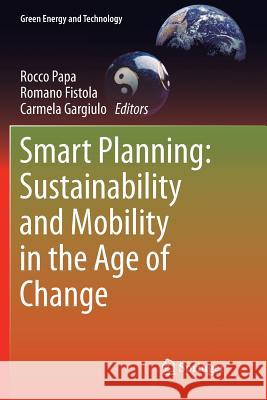Smart Planning: Sustainability and Mobility in the Age of Change » książka
topmenu
Smart Planning: Sustainability and Mobility in the Age of Change
ISBN-13: 9783030085124 / Angielski / Miękka / 2019 / 374 str.
Kategorie:
Kategorie BISAC:
Wydawca:
Springer
Seria wydawnicza:
Język:
Angielski
ISBN-13:
9783030085124
Rok wydania:
2019
Wydanie:
Softcover Repri
Numer serii:
000355820
Ilość stron:
374
Waga:
0.54 kg
Wymiary:
23.39 x 15.6 x 2.03
Oprawa:
Miękka
Wolumenów:
01
Dodatkowe informacje:
Wydanie ilustrowane











